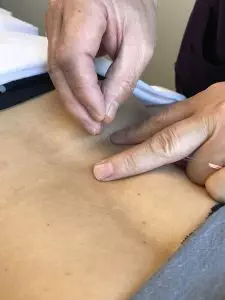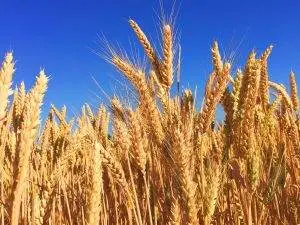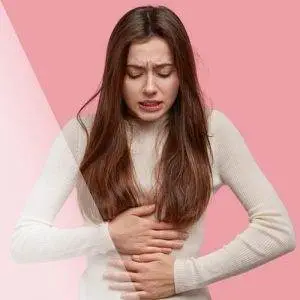-
 Art of Wellness Acupuncture & Traditional Chinese Medicine (TCM)11704 Wilshire Blvd, Suite 295, Los Angeles, CA, 90025
Art of Wellness Acupuncture & Traditional Chinese Medicine (TCM)11704 Wilshire Blvd, Suite 295, Los Angeles, CA, 90025
myartofwellness@gmail.com310-451-5522 Office Hours
MonClosedTue7:30 am --4 pmWed7:30 am --4 pmThu7:30 am -- 4 pmFri7:30 am -- 4 pmSat7:30 am -- 4 pmSunClosedOur office opens from Tuesdays to Saturdays 7:30 am to 4 pm, will be closed on Memorial day, Independent day, Labor day, Thanksgiving day, Christmas and New year.
-
Recent Posts
- How to Treat Rosacea With Acupuncture and TCM
- How to Treat Perioral Dermatitis With Acupuncture and TCM
- Lymphatic Drainage With Acupuncture and TCM
- How to Treat Turf Toe With Acupuncture
- How to Treat Nerve Pain With Acupuncture and TCM
- How to Treat Watery Eyes With Acupuncture and TCM
- How to Treat Ovarian Cysts With Acupuncture and TCM
- How to Treat Dystonia With Acupuncture and TCM
- Can Acupuncture Help Bad Breath?
- How to Treat Atopy with Acupuncture and TCM
- Plantar Fasciosis Treatment With Acupuncture and TCM
- How to Protect Yourself When Air Quality Is Poor
- How to Treat Spinal Headache With Acupuncture and TCM
- How to Treat Sarcoidosis With Acupuncture and TCM
- How to Treat Flu With Acupuncture and TCM
- Chinese New Year 2025 Year of the Snake
- Sign up to receive news and updates and get my free report:“The Top 10 Reasons to Try Acupuncture”

July 2025 M T W T F S S 1 2 3 4 5 6 7 8 9 10 11 12 13 14 15 16 17 18 19 20 21 22 23 24 25 26 27 28 29 30 31
Digestive Disorders
How to Treat Diarrhea With Acupuncture and TCM
By Qineng Tan, L.Ac., Ph.D. & Xiaomei Cai, L.Ac., Ph.D.

Chronic diarrhea, explosive diarrhea, diarrhea after eating? Diarrhea may be related to IBS (irritable bowel syndrome), or an IBD (inflammatory bowel disease), or a reaction to a food allergy, parasites, or stress. Acupuncture and TCM offer an alternative diarrhea treatment, so you can get relief from stomach pain and diarrhea.
Why Do I Have Diarrhea?
There can be many different causes of diarrhea, also known as loose stool. Acute diarrhea, which only lasts one or two days, will usually go away on its own.
Watery diarrhea that lasts a few days is usually due to food poisoning. Eating something that was rotten, or not cooked properly to destroy bacteria, can cause vomiting and diarrhea. Watery diarrhea can also happen when you have some type of viral infection, such as the “stomach flu.”
Chronic diarrhea, or persistent diarrhea, which lasts for weeks, or bouts of diarrhea that come and go frequently, may be related to IBS symptoms, IBD symptoms, Celiac disease, SIBO, or some other problem.
More than 6% of adults in the U.S. report having chronic diarrhea. Chronic diarrhea in children is also a serious health concern worldwide.
Top 10 Causes of Diarrhea
Diarrhea is a common condition that everyone experiences sometimes. Usually it is temporary, but it can become persistent and serious enough to require diarrhea treatment. The most common reasons a person experiences loose bowel movements include:
- Bacterial infection, traveler’s diarrhea, food poisoning, unsafe drinking water
- Viral infection, such as rotavirus, viral gastroenteritis, stomach flu
- Parasite infection, such as giardiasis
- Food allergy, food intolerance, food sensitivity, Celiac disease
- Reaction to medications like antibiotics, antidepressants, or Metformin
- Reaction to radiation therapy, cancer treatment
- IBS – diarrhea, constipation, and stomach cramps are common IBS symptoms
- IBD – colitis or Crohn’s disease, inflammatory autoimmune disorders that affect the gut
- Malabsorption of food, poor absorption of nutrients
- Menstrual cycle or Perimenopause – changes in hormones/estrogen can cause diarrhea
Certain foods can cause diarrhea, including: too much coffee, artificial sweeteners like mannitol and sorbitol, and red food coloring. Magnesium supplements can also cause loose stools.
If diarrhea lasts more than a few days, it is important to seek healthcare advice. Chronic diarrhea can lead to dehydration and fatigue, and may be happening because of some more serious condition that needs to be addressed.
What Causes Chronic Diarrhea?

Bouts of diarrhea that keep recurring can be a symptom of disorders such as:
- IBD (inflammatory bowel disease) – the most common IBDs are ulcerative colitis and Crohn’s disease. IBD symptoms usually include bloody diarrhea and abdominal pain. IBDs can cause chronic or recurring diarrhea, which can lead to dehydration, fatigue, and weight loss. IBDs can be mild, or so serious that they cause long-lasting damage to the gastrointestinal tract.
- Ulcerative colitis – an autoimmune disorder that causes inflammation and ulcers, or open sores, in the lower gastrointestinal system, including the colon and rectum.
- Crohn’s disease – an autoimmune disorder that causes inflammation mainly in the small intestine, but can affect any part of the GI tract.
- IBS – Irritable bowel syndrome can seem similar to IBDs, also causing recurring bouts of diarrhea and stomach pain. However, IBS is considered a functional gastrointestinal disorder. It is quite common. People with IBS symptoms may have alternating bouts of diarrhea and constipation. People who tend to have more diarrhea-dominant IBS have “IBS-D.”
- Celiac disease – an autoimmune disorder in which a reaction to eating wheat gluten causes serious inflammation of the GI system, leading to abdominal pain, bloated stomach, diarrhea, malnutrition, fatigue, and skin rashes.
With these conditions, diarrhea is brought on periodically—sometimes alternating with constipation, as in some cases of IBS—by factors having to do with the diet or stress, or with autoimmune processes.
Some surgeries that affect the gastrointestinal organs—like gastric bypass, gastric sleeve, or gallbladder removal—can cause chronic diarrhea.
Chronic diarrhea can be caused by an inability of the intestinal walls to absorb nutrients, and/or of the walls of the colon to absorb liquid. It may also be due to excessive action of the intestine in terms of peristalsis, the squeezing of the intestine to move matter through.
Diarrhea Treatment
Acute diarrhea usually goes away on its own in a day or two. Often, people will use OTC remedies for diarrhea and stomach pain, such as Immodium or Pepto-Bismol.
If you have been experiencing persistent diarrhea and seek medical advice, a doctor will perform tests to figure out what is causing the diarrhea, and will offer electrolyte fluids to help with dehydration. Blood tests or a stool test will show if the diarrhea is due to a bacterial infection or parasitic infection.
If chronic diarrhea is determined to be related to a medication you are already taking, then that may need to be adjusted.
Discovery of IBS or an IBD usually involves more diagnostic testing, including a colonoscopy and/or endoscopy, to see if there is inflammation or blockage in the GI tract.
Medical treatment for IBS may involve being offered antispasmodic medications that relax the intestinal walls and slow down the movement of the bowels and can help relieve stomach cramps and abdominal cramping. Dietary changes and behavioral therapy may be recommended.
Pharmacological treatment for IBDs like colitis and Crohn’s usually involves taking a combination of anti-inflammatories and immunosuppressants, to reduce inflammation in the gut and to block the inappropriate autoimmune responses that are triggering the inflammation. Unfortunately, steroids and medications like Xeljanz can cause other side effects and health problems.
Medical treatment for chronic diarrhea may help relieve symptoms and reduce the frequency of bouts of diarrhea, but it does not necessarily address the underlying causes of diarrhea.
Acupuncture and TCM offer an effective alternative treatment for diarrhea that is more suited to each patient’s individual situation.
Can Acupuncture Help Diarrhea?

Chronic diarrhea, according to TCM theory, is usually considered to be related to the health of the spleen. In TCM, the organ systems all interact harmoniously, unless there is imbalance. The imbalance of one organ system may throw off other systems, leading to various symptoms.
In TCM, the spleen is responsible for breaking down the nutrients from food and converting them into energy. If the spleen is not functioning properly, watery stool is often the result. Diarrhea, stomach pain, and other symptoms may differ from person to person, depending on how the spleen is interacting with the liver, stomach, or kidneys.
Common Chinese Medicine diagnosis patterns for chronic diarrhea include:
- Spleen Deficiency with Liver Qi stagnation: mucus in the stool, abdominal pain, cramping, gassiness, bloated stomach, irritability, and feelings of depression
- Spleen Deficiency with Stomach deficiency: watery stools, poor appetite, feeling full quickly, stomach distended after eating, pallor, and fatigue
- Spleen Deficiency with Kidney Deficiency: diarrhea in the morning, partially digested food in the stool, abdominal pain, lower back pain, knee pain, feeling cold
Acupuncture treatment for diarrhea, which may include moxibustion and herbs, aims to support the health of the spleen and other organs. Acupuncture has been shown to help relieve diarrhea and constipation related to IBS. Acupuncture treatment can also help with reducing stress and anxiety, which are common triggers for IBS symptoms.
Acupuncture can also help with diarrhea due to IBDs like ulcerative colitis and Crohn’s disease by reducing inflammation and helping to balance immune responses. TCM treatment for Crohn’s disease or colitis, incorporating nutrition and herbal supplements, can help improve the gut biome and strengthen the lining of the intestinal walls.
Acupuncture for Diarrhea Near Me, Los Angeles, West L.A., and Santa Monica
TCM treatment with an experienced acupuncturist near me can be very beneficial for anyone dealing with ongoing gastrointestinal distress. Both adults and children can find relief from diarrhea, constipation, stomach cramps, bloating, and abdominal pain related to conditions like IBS, IBDs, or celiac disease through acupuncture and herbs. At Art of Wellness, we have over 30 years of experience helping people with gastric disorders of all kinds.
*This article is for education from the perspective of Traditional Chinese Medicine only. The education provided by this article is not approved by FDA to diagnose, prevent, treat and cure human diseases. It should not stop you from consulting with your physician for your medical conditions. Traditional Chinese Medicine is based on Qi, which is an invisible force that usually cannot be observed by modern science. Because science focuses on testing ideas about the natural world with evidence obtained through observation, these aspects of acupuncture can’t be studied by science. Therefore acupuncture and Chinese herbs are often not supported by double-blind, randomized trials, and they are considered alternative medicine therapies in the United States.
How to Treat Constipation With Acupuncture and TCM
By Xiaomei Cai, L.Ac., Ph.D. & Qineng Tan, L.Ac., Ph.D.

Using a laxative or stool softener so that you can have a bowel movement? Everyone experiences constipation once in a while, but chronic constipation can be a serious issue. Acupuncture and TCM offer a natural way to get constipation relief.
Having difficulty going to the bathroom (pooping) is unfortunately a very common problem. Millions of people see their doctor seeking constipation treatment every year. People of all ages—children, adults, and older people—can suffer from slow digestion and hard bowel movements.
Symptoms of constipation can include:
- Dry, hard stool
- Having less than three bowel movements per week
- Bowel movements are difficult and/or painful
- Bloated stomach
- Abdominal cramps
- Nausea
Basically, constipation occurs when the muscles of the large intestine are not properly moving matter through and out of the colon. Slow movement can result in too much water being absorbed by the colon, causing hard, dry stools.
In general, “normal” bowel movements should be soft and easy to pass, and should happen daily. However, it is not at all uncommon for people to have painful constipation and only go a few times a week, or have even less frequent bowel movements (severe constipation).
There can be many different reasons why there is an imbalance of water in the colon, or that the muscles aren’t functioning well enough. These deeper causes need to be addressed if chronic constipation is becoming an issue.
Fortunately, TCM treatment for constipation includes traditional herb formulations that have been used for centuries as a natural laxative, and acupuncture, which can help strengthen the muscle action of the intestines.
Constipation Causes

Constipation can occasionally occur due to short-term circumstances. Many people experience temporary constipation while they are on a trip and using unfamiliar bathrooms. Eating foods that are unusual for you or low in fiber, becoming dehydrated, not getting any physical activity for several days—these situations could all cause sluggish elimination.
IBS (irritable bowel syndrome), which is considered a functional gastrointestinal disorder, often involves periodic constipation (or diarrhea).
Chronic constipation or severe constipation can have many causes. Sometimes constipation can be caused by a bowel obstruction, or something physically blocking the intestine.
Constipation can also be a secondary condition related to another chronic health problem.
Conditions that cause damage to nerves may disrupt the signals that tell the muscles of the colon to move. These could include:
- Diabetes
- Multiple sclerosis
- Parkinson’s disease
- Stroke
- Injury to the spinal cord
Hormonal imbalances or fluctuations can also lead to constipation. Hormone-related conditions that could contribute to constipation include:
- Diabetes
- Pregnancy
- Menstrual cycle, PMS, Period
- Hypothyroidism
- Hyperparathyroidism
Some medications can cause constipation, such as:
- Narcotics, opioid pain medications (such as Vicodin)
- NSAIDs, like ibuprofen
- Some antidepressants (like Zoloft)
- Blood pressure medications
- Sedatives
- Iron supplements
- Antacids like Maalox or Mylanta
- Diuretics
- Medications for overactive bladder, like Ditropan and Detrol
- Parkinson’s medications, like Sinemet
- Nausea medications
Using laxatives and other over-the-counter constipation remedies as a habit can, unfortunately, perpetuate the cycle and lead to ongoing, chronic constipation.
Mental health conditions like depression and anxiety can also affect regularity. TCM and acupuncture can help improve mental health as well as physical health to help bring constipation relief.
Constipation Side Effects
It is very important to find the root cause of constipation and find a solution. Chronic constipation can lead to other serious complications, such as:
- Hemorrhoids
- Anal fissures
- Diverticulitis
- Fecal impaction
- Stress urinary incontinence
Fortunately, acupuncture and TCM offer natural remedies for constipation without habit-forming medications.
Can Acupuncture Help Relieve Constipation?

In TCM, we diagnose a condition based on the pattern of symptoms each individual person is experiencing, as sometimes the same condition—in this case, constipation—can actually be influenced by many different variables. The diagnostic pattern gives us information about what acupuncture points and herbs will help treat that individual case.
According to TCM theory, constipation can present as:
- Yin Deficiency
- Excess Heat
- Qi Deficiency
In older people, chronic constipation is often related to weakness in the kidneys and liver, which leads to malnourishment and stagnant Qi.
In general, TCM constipation treatment will focus on helping to bring more moisture into the colon and clear heat, while activating the Qi (energy) of the bowel and removing physical and energetic blockages.
Many people who suffer from constipation don’t have enough microbiota or “good bacteria” in their colon. Acupuncture and herbs can help to improve the gut biome.
One study showed that electro-acupuncture helped a significant number of people with chronic constipation have more frequent bowel movements.
One study conducted in China found that, after 20 sessions, gastrointestinal patients who received acupuncture for constipation had a success rate of over 82%, meaning they had more frequent and easier bowel movements.
Another study showed that patients who went through a series of acupuncture treatments sustained longer-lasting efficacy from their treatment than patients who had used medicinal laxatives.
One commonly used Chinese formulation for constipation has been shown to help increase levels of oleamide, which is associated with intestinal motility.
Acupuncture Near Me for Constipation in Los Angeles and Santa Monica
At Art of Wellness, we often treat patients for constipation, whether that is their primary complaint, or sometimes a secondary issue to their other concerns. Acupuncture and Chinese herbs are excellent modalities for helping people achieve regularity and better overall digestion.
*This article is for education from the perspective of Traditional Chinese Medicine only. The education provided by this article is not approved by FDA to diagnose, prevent, treat and cure human diseases. It should not stop you from consulting with your physician for your medical conditions. Traditional Chinese Medicine is based on Qi, which is an invisible force that usually cannot be observed by modern science. Because science focuses on testing ideas about the natural world with evidence obtained through observation, these aspects of acupuncture can’t be studied by science. Therefore acupuncture and Chinese herbs are often not supported by double-blind, randomized trials, and they are considered alternative medicine therapies in the United States.
How to Treat Colitis With Acupuncture and TCM
By Xiaomei Cai, L.Ac., Ph.D. & Qineng Tan, L.Ac., Ph.D.

Diarrhea, bloody stool, fatigue, fever? These could be colitis symptoms. Ulcerative colitis is an inflammatory bowel disease (IBD) that causes swelling in the large intestine, abdominal pain, bloating and bloody diarrhea. Acupuncture and TCM can offer an alternative colitis treatment to help relieve ulcerative colitis symptoms.
Colitis is a gastrointestinal disease in which the colon—also known as the bowel, or the large intestine—becomes inflamed and can develop open sores, or ulcers.
Ulcerative colitis is the term for colitis that is caused by an autoimmune disorder. The immune system launches an attack on the tissues of the intestinal lining, causing inflammation and sores. It is similar to Crohn’s disease: an autoimmune disease that can affect any part of the digestive tract.
What causes colitis? There are several problems that can lead to abdominal pain and diarrhea, and sometimes it can be difficult to discover what is causing a person to have colitis symptoms.
Parasites, bacterial infections, or food poisoning can cause pain, inflammation in the colon, and diarrhea. For example, e coli bacteria, sometimes found in improperly cooked beef, can cause colitis symptoms. This is known as e colitis, or hemorrhagic colitis.
IBS (irritable bowel syndrome) symptoms can seem similar to those of colitis. People who suffer from IBS can have abdominal pain and diarrhea, urgency and mucus in their stool. However, IBS is considered a functional gastrointestinal disorder, not a disease. IBS does not cause permanent damage to the intestinal lining, while colitis can.
Ischemic colitis is a specific type of colitis caused by a blockage of blood flow to the intestine. This is more common in older adults, and can be the result of a blood clot in an artery, or low blood pressure due to heart failure or recovery from some major surgery. Some conditions, like lupus or sickle cell anemia, can restrict blood flow to the gastrointestinal tract. It could also happen due to a bowel obstruction caused by a tumor or hernia. Some medications can also restrict blood flow to the intestine.
TCM and acupuncture treatment, whether alone or as an adjunct to conventional treatment, can help relieve the symptoms of colitis by reducing inflammation in the intestine, helping to stop bleeding and helping to restore normal bowel movements.
Colitis Symptoms

Ulcerative colitis symptoms can be mild at first and become more persistent and/or severe over time. Some common symptoms of colitis, or IBD symptoms, include:
- Loose stool, loose bowel movements, diarrhea
- Urgency to go to the bathroom, feeling like you have to poop all the time
- Feeling like you have to poop, but not being able to
- Bloody stool, bloody poop
- Mucus in stool
- Abdominal pain
- Abdominal cramps, cramping
- Rectal pain
- Fatigue, feeling tired all the time, no energy
- Fever
- Weight loss
Symptoms of ulcerative colitis can come and go, or “flare up” at times. When symptoms abate, this is called “remission.”
Children can have colitis, which may cause them to not grow properly.
Colitis Treatment
Testing for IBDs might start with some basic blood tests and a stool sample test to see if there are any bacterial or parasitic causes of diarrhea. If inflammation needs to be looked at more closely to discover its location and cause, a colonoscopy or sigmoidoscopy may be done. Imaging—X-ray, ultrasound, or MRI—may be used to show if there is some kind of obstruction of the intestine.
If testing and treatment have ruled out IBD and other potential causes, a tissue biopsy may be used to diagnose ulcerative colitis, the autoimmune form of colitis.
Generally, once colitis or inflammatory bowel disease has been diagnosed, the main goal is to reduce inflammation in the colon. Anti-inflammatory drugs will usually be prescribed. Anti-diarrheal medications and pain relievers provide some symptomatic relief.
Ulcerative colitis is usually treated with a combination of anti-inflammatories and immunosuppressants. Unfortunately, these types of medications can have significant side effects. Long term use of corticosteroids can cause bone loss and swelling, while immunosuppressants can stress the liver and pancreas.
Newer pharmacological treatments include “small molecules,” like Xeljanz, which act as anti-inflammatories and immunosuppressants. However, these drugs have been flagged for potentially causing heart problems, and maybe even cancer.
When medications and dietary changes don’t help enough, surgery to remove part of the large intestine may be sought.
Acupuncture and TCM offer an alternative treatment for colitis, which may help relieve symptoms without side effects.
Can Acupuncture Help Colitis?

TCM herbs and acupuncture treatment are excellent modalities for helping to reduce inflammation. In the case of colitis and ulcerative colitis, the central problem is that the body is producing an inflammatory response in the large intestine that leads to pain and dysfunction. According to TCM theory, imbalances in the internal organs can cause heat, dampness, or blood stasis. In different people, the ways that colitis shows up may vary, depending on the pathogenic forces at work.
Acupuncture points to help relieve diarrhea, bloating, and bleeding in the colon will be combined with beneficial herbs to help clear heat and dampness. One study done in China showed that patients with ulcerative colitis who received acupuncture and herbal supplements in addition to conventional pharmaceutical treatments healed more quickly than those who did not receive TCM. They also reported feeling less anxiety and depression.
A systematic review of studies done regarding TCM for colitis concluded that acupuncture and herbs were effective compared to medical treatments.
Studies have shown that acupuncture can help balance the gut biome and help strengthen the intestinal walls.
Acupuncture has been shown to help people whose colitis is in remission to maintain better function.
TCM herbs, used in combination with conventional treatment, may help improve the healing of the mucosal lining of the intestine. One study showed that herbs helped stop bleeding from the colon in patients with ulcerative colitis.
Moxibustion has also been shown to help as a treatment for IBD, helping to relieve diarrhea, nausea, and abdominal cramping.
Acupuncture is believed, in part, to help regulate inflammatory bowel diseases by providing positive stimulation of the vagus nerve, which plays an important role in inflammatory responses.
Acupuncture Near Me for Ulcerative Colitis in Los Angeles and Santa Monica
Acupuncture can be an excellent adjunct to standard treatment for gastrointestinal disorders of all kinds, including: IBS, Crohn’s disease, Celiac disease, and Candida. At Art of Wellness, we have over 30 years of experience helping people with IBD and colitis to improve their quality of life.
*This article is for education from the perspective of Traditional Chinese Medicine only. The education provided by this article is not approved by FDA to diagnose, prevent, treat and cure human diseases. It should not stop you from consulting with your physician for your medical conditions. Traditional Chinese Medicine is based on Qi, which is an invisible force that usually cannot be observed by modern science. Because science focuses on testing ideas about the natural world with evidence obtained through observation, these aspects of acupuncture can’t be studied by science. Therefore acupuncture and Chinese herbs are often not supported by double-blind, randomized trials, and they are considered alternative medicine therapies in the United States.
How to Treat Colic and Infant Reflux With Acupuncture and TCM
By Xiaomei Cai, L.Ac., Ph.D. & Qineng Tan, L.Ac., Ph.D.

Colic and infant reflux are conditions that can cause excessive crying in babies and a lot of worry for new parents. Newborn reflux is when a baby spits up a lot, which is sometimes treated as GERD in infants. Infant reflux, also called baby reflux, and colicky pain can both be soothed with acupuncture and TCM treatment for babies.
Colic or Baby Reflux Can Be Treated With Chinese Medicine and Acupuncture
What is colic? Infantile colic is a well-known yet little understood syndrome, with crying being the primary symptom. Signs of colic include fussiness and crying inconsolably for hours. The crying, which can be more like screaming, often occurs at about the same time every day, usually in the later afternoon or evening. A colicky baby may also have a red face and display motor behaviors like clenched fists and drawing their legs up to their tummy.
What causes colic is not known, but it is sometimes attributed to gassiness and the movement of the undeveloped digestive system, which the colic newborn experiences with intense discomfort. It has been suggested that it may be related to food allergies in some infants, or to gut health. Some people also link colic to birth trauma. Babies with colic may have sensitivities related to the nervous system and have more trouble adapting to their environment, both externally and internally.
Colic is fairly common, affecting about 10-35% of infants. Most babies outgrow colicky abdominal pain within a matter of months. Those few months can be very stressful for the whole family, though. Colic is considered to be a factor in some mothers developing postpartum depression, so finding colic remedies is important for everyone’s mental health.
The symptoms of colic can sometimes look similar to those of infant reflux. Baby reflux also leads to fussy crying, wiggling and arching the body, and having trouble settling down to sleep.
Infant reflux refers specifically to a baby spitting up undigested milk from the stomach. This is also called GER (gastroesophageal reflux) and is actually a normal thing that happens with most babies.
Reflux happens because there is not a firm seal created by the esophageal sphincter muscle, which is still developing in a young infant. Sometimes premature infants are especially susceptible to having infant reflux.
Babies’ stomachs are designed to take in just a little bit of milk at a time. If the baby is getting too much milk, or swallowing air, it can cause leaking from the stomach up into the esophagus, especially when lying down.

Sometimes just working out the right feeding schedule, burping, and sleeping positions helps. In other cases, nothing seems to help. If spitting up or vomiting is interfering with the baby getting enough nutrients, then failure to thrive can become a real concern.
Acid reflux in newborns that is on the level of a disorder is rare (less than 1%). Sometimes, though, a baby may actually have GERD, where the spitting up happens very frequently and is causing the baby to feel sensations that we think of as “heartburn.” This can also lead to respiratory problems like coughing or choking due to breathing in the stomach acids.
You might find it hard to imagine acupuncture treatment being used for a tiny baby, but infants respond very positively to treatment. Sometimes auricular acupuncture (acupuncture on ear), where seeds are used instead of needles, is an option. Acupuncture can help baby reflux and colic on many levels: relieving pain, reducing bloating and inflammation in the digestive tract, while calming anxiety and restlessness and improving sleep.
Top 10 Signs of Infant Reflux
Newborn reflux symptoms can look similar to the symptoms of colic, but if there is frequent regurgitation of milk, or respiratory symptoms like coughing and wheezing, that may indicate baby reflux as opposed to colicky symptoms. Symptoms of infant reflux include:
- Frequent spitting up or vomiting
- Fussiness, irritability
- Crying a lot, screaming inconsolably
- Arching back, tensing the body, wiggling
- Hiccups
- Coughing or wheezing while feeding
- Excessive drooling
- Poor sleep
- Doesn’t want to feed
- Spit up is green or bright yellow
New parents may be easily overwhelmed when it appears that their baby is in pain and isn’t digesting their food properly. If dietary changes and adjustments to the feeding schedule aren’t helping, then parents may seek medical advice.
Treatment for Infant Reflux

Generally, if your doctor just sees colicky symptoms, there is not a whole lot they can do other than offer suggestions for changing the dietary routine and making your baby as comfortable as possible.
In recent years, it seems that doctors are more and more likely to make a diagnosis of infant reflux when a baby is spitting up and crying, and to recommend medication as a treatment.
In the last few decades, GERD medications for reducing stomach acids, known as PPIs, (proton pump inhibitors), like Prilosec and Prevacid, have been deemed safe for adults and infants. However, evidence has also pointed to various problems and side effects with using these medications for more than a short period of time.
Changing the production of stomach acids in a young baby can affect how they are absorbing nutrients, like calcium and Vitamin B12. Use of PPIs has also been observed to cause kidney problems and affect bone density in adults. Less stomach acid can lead to more bacteria and more respiratory infections.
The majority of babies who experience infant reflux and/or colic will get over it naturally, usually within a few months. Anything that can be done to help understand the child’s constitution and promote good health during this time should certainly be considered. However, many people will not feel that resorting to medications is the best or only option.
Acupuncture and TCM offer a way to help acid reflux in babies and adults, without side effects. TCM treatment can help strengthen an infant’s digestive system, nervous system, and immune system, all at the same time.
Can Acupuncture Help Infant Reflux and Colic?
An acupuncturist will look carefully at the baby for symptoms of reflux and colic so as to differentiate, according to TCM principles, where there is an imbalance. For example, if a baby is crying, has a red face, and is feverish, we might see the pattern of “hot colic,” which happens when there is too much warmth in the stomach Qi. Babies with “cold colic” may be more listless and have chilly hands and feet. When treating Colic and infant reflux, the TCM practitioner will work on balancing and regulating the stomach Qi and clearing stagnation.

Many acupuncture points can be stimulated in order to help make the baby more comfortable and calm. The Yin Tang point can be helpful for reducing restlessness. Shen Men is the classic point to regulate the nervous system and help banish anxiety. Stomach points can help to reduce nausea and help stimulate the appetite.
Case studies have shown that small infants who are vomiting or spitting up can respond to acupuncture quickly, even after just one treatment. A larger study showed that acupuncture was effective at relieving colicky symptoms, shortening the duration of episodes of fussy crying.
Studies with adults have shown that acupuncture and herbs are more effective for long term reduction of acid reflux than PPIs. Acupuncture treatment can also help strengthen the lower esophageal sphincter (LES).
In many cases, new parents need individualized support for making feeding and dietary changes. A qualified acupuncture provider is also highly trained in nutrition and can help determine if there are certain foods that need to be eliminated from the nursing parent’s diet or from the formula of choice. Finding positions and practices that help the baby relax before and during feeding, burp appropriately, and be settled to sleep when a feeding has come to a satisfactory close can be life-changing. These will be easier to implement when acupuncture treatment has helped even out the infant’s nervous system and soothed the stomach.
Acupuncture Near Me for Infant Reflux and Colic in Los Angeles
Parenting is a hard job, especially when the baby is not eating or sleeping well. TCM treatment can help with all kinds of postpartum issues for both mother and child, including problems with breastfeeding, postpartum depression, an infant’s weight loss or failure to thrive, as well as colic and infant reflux. Please, if your baby is crying and seems to be in pain, or is having trouble feeding, do not hesitate to call us at Art of Wellness. Drs. Cai and Tan have over 30 years of experience treating mothers and children with gentle acupuncture, herbs, and good advice.
*This article is for education from the perspective of Traditional Chinese Medicine only. The education provided by this article is not approved by FDA to diagnose, prevent, treat and cure human diseases. It should not stop you from consulting with your physician for your medical conditions. Traditional Chinese Medicine is based on Qi, which is an invisible force that usually cannot be observed by modern science. Because science focuses on testing ideas about the natural world with evidence obtained through observation, these aspects of acupuncture can’t be studied by science. Therefore acupuncture and Chinese herbs are often not supported by double-blind, randomized trials, and they are considered alternative medicine therapies in the United States.
How to Treat Celiac Disease With Acupuncture and TCM
By Qineng Tan, L.Ac., Ph.D. & Xiaomei Cai, L.Ac., Ph.D.

Do you have digestive problems like a bloated stomach, diarrhea, and abdominal pain? Unintentional weight loss, fatigue, skin rashes? These can all be signs of Celiac disease. Different from food allergies, Celiac is a serious autoimmune disorder that can lead to malnutrition and other debilitating health problems. TCM herbs and acupuncture treatment offer a good alternative way of managing Celiac disease and gluten intolerance symptoms.
In recent years, you have probably heard a lot of people saying they are switching to a gluten free diet because they have a gluten allergy or gluten intolerance. Sometimes people may just be trying to see if they feel better when they cut out wheat products, or they are going on a low carb diet to help them lose weight. Other people may be experiencing symptoms like diarrhea and nausea and hope that going on an IBS diet will help.
What is gluten? Gluten is a protein that is present in some grains, including wheat, barley, and rye. When a person has Celiac disease, gluten is perceived by the immune system as a dangerous foreign substance, triggering an immune response. Antibodies (white blood cells) are produced as a reaction to gluten entering the body, and the antibodies end up causing inflammation and damage to the inside of the intestinal tract.
This damage to the small intestine is called villous atrophy, and this is what causes inflammation and malabsorption of nutrients, leading to the myriad symptoms of Celiac. Celiac symptoms vary widely, and can include both digestive problems, and other conditions, like anemia, that stem from the lack of proper nourishment to the body.

There is such a thing as a true wheat allergy, which for some people causes respiratory problems like difficulty breathing and nasal congestion, and other allergy symptoms like swelling and itching around the mouth and throat, hives or other itchy skin rashes, and headaches. Wheat allergies are a response to chemical compounds in wheat, which is found in a wide variety of food products. In some cases, exposure to wheat can cause anaphylaxis, which requires emergency medical attention because it can involve trouble breathing and swallowing, chest tightening, throat swelling, dizziness, and fainting.
Some doctors now recognize gluten intolerance or non-celiac gluten sensitivity as a separate condition from Celiac disease. For some people, gluten causes an immune response and symptoms, but not the same kind of damage to the intestines that Celiac does. If gluten intolerance is suspected, then following a gluten free diet for a period of time and noticing if symptoms clear up is usually the recommended course of action.
Celiac disease tends to run in families, and so is considered to be passed genetically. People can begin to show signs of Celiac at any age. It is estimated that at least 1% of the population has Celiac disease, but that number may be significantly higher, as it is still not a very well understood condition. Many people who have Celiac disease are unaware of it, or have been misdiagnosed with other conditions. Researchers believe that the incidence of Celiac disease is increasing worldwide, probably due to some environmental factors.
Acupuncture and TCM herbs provide a holistic way to treat Celiac disease, relieving the painful symptoms and providing detailed guidance for lifestyle and dietary changes that can help people manage Celiac and gluten intolerance. Nutrition is considered to be one of the primary branches of TCM, along with acupuncture and herbs. A TCM practitioner will be able to give you dietary recommendations far beyond just telling you to eat gluten free foods.
Top 10 Celiac Disease Symptoms
People can experience a variety of gluten intolerance symptoms, including digestive problems, allergy symptoms like skin rash, and other symptoms related to nutritional deficiency, like anemia and weight loss. Signs of gluten intolerance may be different in children, who are more susceptible to malnourishment that can lead to a failure to thrive.

Celiac symptoms include:
- Fatigue
- Weight loss
- Diarrhea, pale colored stools, foul-smelling, fatty, greasy stool
- Abdominal bloating, bloated stomach, gas, stomach pain, abdominal pain
- Nausea, vomiting
- Constipation
- Headache, headaches, migraines, migraine headaches
- Skin rash, mouth ulcers, mouth sores, canker sores
- Neuropathy, numbness or tingling in hands and feet, problems with balance, joint pain
- Cognitive problems, foggy head, difficulty concentrating
Celiac can lead to SIBO, anemia, iron deficiency, loss of bone density (osteoporosis), weak bones, soft bones, bone loss (osteopenia), joint pain, or arthritis. People can also have liver problems, including fatty liver.
Dermatitis herpetiformis is a specific type of skin rash that causes itching and blisters to appear, primarily on the knees, elbows, torso, top of the head, and buttocks.
Women may find that celiac disease affects their hormones, menstrual periods, and can have an impact on fertility, even causing recurrent miscarriages.
Celiac disease can also contribute to infertility and low sperm count in men.
When a child develops celiac disease, the inability to absorb nutrients from food can cause problems with normal growth, such as short stature, delayed puberty, and damage to tooth enamel. Developmental disorders and behavioral issues can also be related to celiac, like ADD/ADHD and irritability.
In extreme cases, Celiac can cause seizures.
Celiac Disease Diagnosis and Treatment

Going through the process of being diagnosed with Celiac disease or gluten intolerance is quite complicated and involves multiple tests. From the medical standpoint, it is best that you do not eliminate gluten or change your diet before the testing, so that it can accurately show how gluten is affecting your immune system and your intestines.
First, you will probably have a blood test that looks for certain antibodies that would indicate an autoimmune reaction to gluten. Some people may test negative for antibodies, and yet still have Celiac, though, so this blood testing is not enough to be conclusive. Genetic testing may be done, which looks for specific antigens to rule out Celiac. If testing shows that a person has antibodies, and they also have a specific type of skin rash (dermatitis herpetiformis), that is usually enough for a doctor to give an official diagnosis of Celiac disease.
Endoscopy is an imaging test which uses a little camera to see if there is damage to the intestinal lining. They will also take some tissue samples from the lining of the intestine to check for inflammation and damage. The results of these tests may lead to a formal Celiac diagnosis. People will often need to have an endoscopy to find out if they have Celiac disease, and then possibly repeated endoscopies to see if the inflammation is getting better or worse.
Sometimes people will try figuring out what is going on themselves with a food sensitivity test or food intolerance test kit that you can do at home and send in for results. Food allergy testing may give you some information as to whether you have a reaction to a specific allergen (egg allergy, milk allergy, peanut allergy, shellfish allergy) or have a food sensitivity, but they cannot tell you if you really have Celiac disease or gut inflammation.
Going through the diagnostic process for autoimmune diseases like Celiac disease can be exhausting in and of itself. Meanwhile, you aren’t yet getting treatment for your symptoms. The only treatment available in conventional medicine for Celiac disease really is to follow a gluten free diet. Most doctors are not able to do much beyond give you a list of foods you shouldn’t eat, or refer you to a dietitian.
TCM has the ability to provide more comprehensive care for people with Celiac disease, and many other autoimmune conditions. Acupuncturists are highly trained professionals when it comes to offering patients detailed guidance for following an effective Celiac disease diet.
Can Acupuncture Help Celiac Disease and Gluten Intolerance?

TCM has more to offer than just acupuncture treatment and herbal medicine. Nutrition is one of core competencies every TCM practitioner must master.
Acupuncture treatment can help relieve digestive symptoms like abdominal pain and bloating, and also have a positive impact on the system malfunctioning that leads to autoimmune reactions. With Chinese herbs, we are able to get very potent nutrients into the body that wouldn’t normally come from food. For people with Celiac, or other problems like food allergies or sensitivities, malnutrition due to malabsorption is a real problem.
A TCM nutrition approach can help restore the body’s health with foods and herbs better than a simple elimination diet for Celiac disease can. An acupuncturist listens carefully to the particular symptoms and sensations you describe. These provide important clues as to which organ systems are involved, and where yin and yang are out of balance. Then TCM provides a framework for tailoring the treatment and food plan for Celiac disease to each individual’s needs.
According to TCM theory, the stomach and spleen are responsible for digesting food. Celiac disease symptoms are, according to a typical TCM diagnosis, related to a spleen deficiency. When Qi in the spleen is weak, the body is not getting the nutrients it needs. Building up the strength of the spleen will often be the focus of the acupuncture portion of the treatment. Herbs and specific nourishing foods will be recommended, which will help anemia and soothe the digestive tract.
Acupuncture Near Me For Celiac Disease, West Los Angeles
Autoimmune diseases like Celiac disease can be especially frustrating because they seem to take over your whole life. Not only physical health, but mental health is compromised. Treatment options are limited. Fortunately, TCM offers a complementary form of medicine that is able to provide multi-faceted care for autoimmune disorders like Celiac, including: Crohn’s disease, Type 1 diabetes, hyperthyroidism, Lupus, rheumatoid arthritis, fibromyalgia, and multiple sclerosis (MS). Acupuncture treatment can help reduce feelings of anxiety and depression as you learn to manage your illness.
If you or someone you know has been suffering from digestive issues, and you suspect it may have something to do with gluten intolerance or Celiac disease, be prepared to go through testing, but also give some thought to adding a TCM provider to your health care team. At Art of Wellness, we have over 35 years of providing excellent care through TCM treatments, including expert nutrition services. It is like getting an acupuncturist and dietitian in one.
*This article is for education from the perspective of Traditional Chinese Medicine only. The education provided by this article is not approved by FDA to diagnose, prevent, treat and cure human diseases. It should not stop you from consulting with your physician for your medical conditions. Traditional Chinese Medicine is based on Qi, which is an invisible force that usually cannot be observed by modern science. Because science focuses on testing ideas about the natural world with evidence obtained through observation, these aspects of acupuncture can’t be studied by science. Therefore acupuncture and Chinese herbs are often not supported by double-blind, randomized trials, and they are considered alternative medicine therapies in the United States.